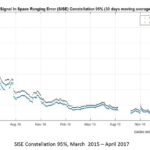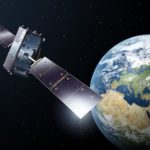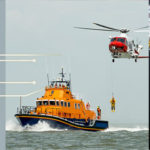Europe’s Galileo satellite navigation system has undergone its first performance report since it started work at the end of last year, and it passed with flying colors.
The European GNSS Agency, GSA has published the first of its regular quarterly performance reports on Galileo. This European GNSS (Galileo) Initial Services Open Service report, now available online, covers the first three months of 2017 and documents the good performance of Galileo Initial Services to date.
The report shows the 11 satellites then operating in the Galileo constellation were able to provide healthy signals 97.33 percent of the time on a per satellite basis, with a ranging accuracy better than 1.07 m and disseminating global UTC time within its signal to within 30 billionths of a second on a 95 percentile monthly basis. Read more…







